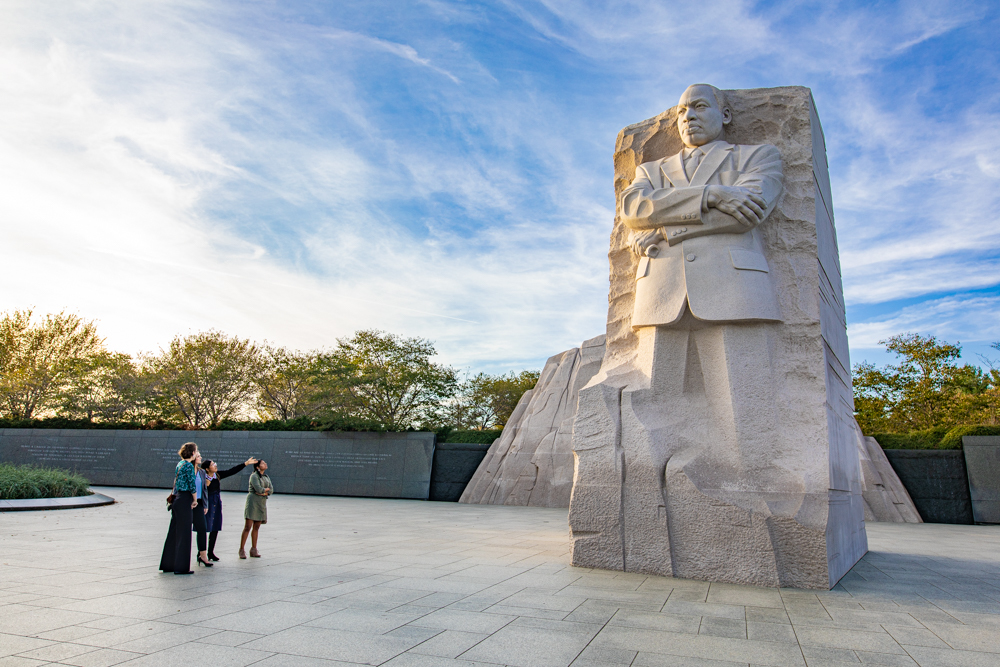Eastern Mennonite University will observe Martin Luther King Jr. Day Jan. 19-20, 2020, with a range of events on campus, in the Harrisonburg community, and in Washington, D.C.
View all events on the EMU website.
This is the second year that classes have been cancelled and participation encouraged in a variety of activities, including a long-standing tradition of joining a Sunday worship service in one of the Northeast Neighborhood churches with state senator Jennifer McClellan (D-Richmond) at the Lucy Simms Community Center, a luncheon at John Wesley United Methodist Church, as well as a barbershop talk in The Royal Treatment student lounge hosted by local barber Tyrone Sprague.
Many students participate in a day trip to Washington D.C. led by Kimberly Schmidt, co-director of the Washington Community Scholars’ Center. The tour includes participation in the MLK Day parade with Community of Hope nonprofit in the African American community of Anacostia and a visit to the Martin Luther King, Jr. monument.
Several trainings highlight themes of inclusivity, including diversity awareness with Marvin Worthy of Worthy Consulting & Training and SafeZone trainings for LGBTQIA+ students, committed allies, faculty and staff.
Professor Mark Sawin also offers a lecture on “Remembering the Confederacy: A Monumental Debate” at 1:30 p.m. and 3 p.m. in Common Grounds.

Keynote and workshops with U.Va. professor Jalane Schmidt
Among other highlights on campus, Professor Jalane Schmidt provides a keynote address at the Monday convocation and later that day, leads a two-part training on campus activism. A professor of religious studies at the University of Virginia and an organizer with the Charlottesville chapter of Black Lives Matter, she helped to organize counter protests against white supremacy groups during the Unite the Right rally in August 2017.
Schmidt leads walking tours of Charlottesville’s downtown Confederate monuments, and helped plan and lead the city’s first Liberation and Freedom Day in 2019, which commemorated the 14,000 enslaved residents of Charlottesville and Albemarle County who were emancipated on March 3, 1865, when Union troops arrived. Last year, Schmidt assisted in memorializing Charlottesville resident John Henry James, who was lynched in 1898.
“History belongs to everyone, not just scholars,” Schmidt wrote in a blog post for the American Civil Liberties Union (ACLU). The ACLU represented Schmidt when she was sued for defamation by one of the plaintiffs who had originally sued to prevent the removal of Charlottesville’s Confederate monuments.
“Marginalized narratives of vulnerable groups of our community must be included in our collective story in order to inform our efforts to make changes in the present and to promote a more just and equitable future.”
